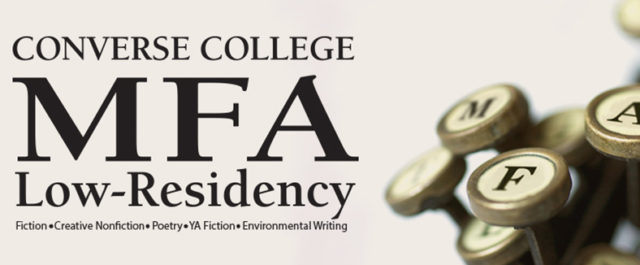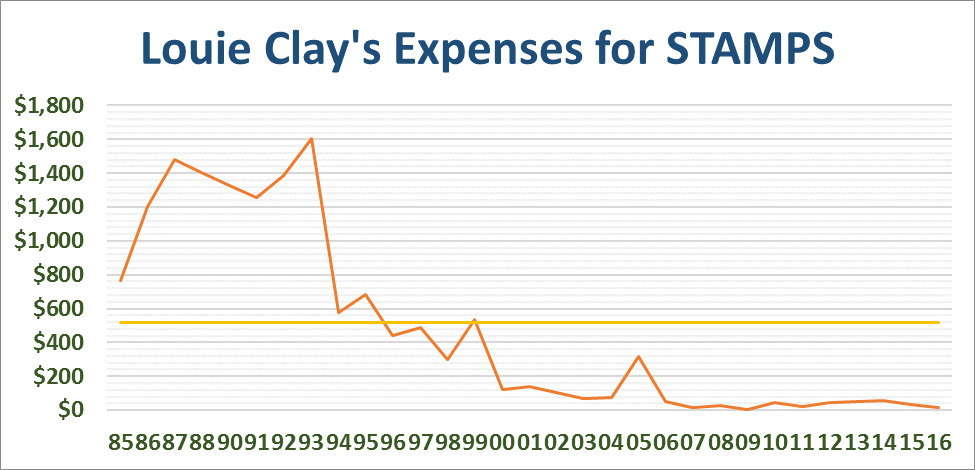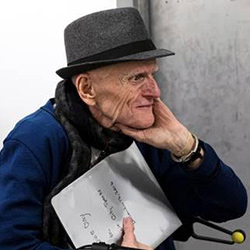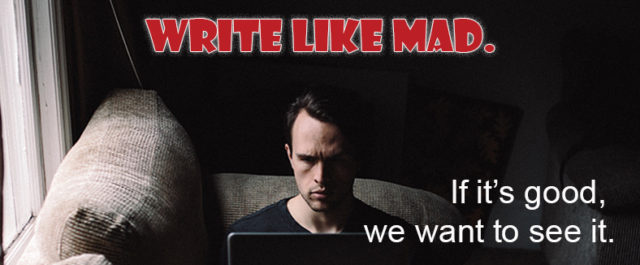Josh Springs
Denise Duhamel, famed poet and core faculty member of Converse College’s Low Res MFA Program, gave a lecture during the January residency on using concrete imagery in poetry. As I sat in the uncomfortable Marriott chairs, my mind wandered to how abstract and heady I once thought poetry was. I am a tactile person. I sculpt and work with clay and other mediums in three-dimensional space and my inaccurate assumption had always been that poetry was a distant and abstract discussion of emotions. Duhamel dismantled my presumptions and showed me the most powerful poetry should be poked with a stick. Throughout the semester, I realized the message translated to all genres.
William Carlos Williams once famously said, “No idea but in things.” This premise was the heartbeat of Duhamel’s lecture as she discussed the poetry of Pablo Neruda (“Ode to To Things”), Etheridge Knight (“The Idea of Ancestry”), and Sharon Olds (“I Go Back to May 1937”) among others. During her craft lecture, Duhamel defined the objective correlative. This idea — that objects have an emotional attachment that defines other, often stronger emotions — is what separates amateur work from masterpieces. Regularly, students allow the concrete details to slip through the cracks. Duhamel encouraged attending students to go to the untouched pieces of our reality, even the painful moments, and allow the objects to reflect the emotions. It’s so much easier to write from a detached place because the scene doesn’t feel real to the writer. Unfortunately, it doesn’t feel realistic to the reader either.
Within the same residency Leslie Pietrzyk, a faculty member who specializes in fiction, expanded on this idea as she discussed her knowledge of writing about personal experiences. Pietrzyk’s most recent short story collection, This Angel on My Chest, explored many truths within her own life as a young widow. In fact, each story in the collection contained one concrete truth from her own life. For Pietrzyk, capturing the feelings of the past meant grounding readers through their senses. She encouraged students to answer and explain things like: What was the weather like? Were there any smells that stood out? What did the car look like? What did the pie taste like? While all of the details were unlikely to make the final version of a manuscript, pertinent facets reveal themselves to the writer.
Pietrzyk concluded her lecture with a series of writing prompts (see below) that would force students to use concrete imagery as they created. These prompts instructed students to give physical or sensory details about the character’s surroundings. For me, these prompts helped me stay with a memory or image where an abstract concept — for instance, write about love — would’ve been too big picture and the details, once thought to be minute, would get lost.
These reminders to use concrete details came at an especially useful time for me. My creative project this semester focuses on a teenager with strong faith and a mental disorder who is forced into a new living situation he’s unhappy about. Much of the meat of the story happens in the protagonist’s head. The challenge is finding ways to ground my reader in reality and not just the main character’s subconscious. To do so, I’ve used concrete imagery of his living situation, and the manifestations of his faith and illness together to get out of his mind and into the world of the story. This came through food, setting, appearances, and actions.
In closing, abstraction is good and necessary, but, as with everything else, there is a time and a place for it. Nobody is saying your four hundred page waxing about your mistreatment in childhood isn’t worth reading. But if the story isn’t based in reality and instead is a thinly veiled bitter rant against your parents for not getting you that pony you wanted, you shouldn’t expect a wide audience. Being concrete is a gift for the reader, to give them a world to be planted in for the length of the work. Give readers something they can hold, they can look at, they can smell. Give them something realistic and relatable so they want to invest more time with characters they grow to love.
Writing Prompts to Develop Concrete Imagery
These writing prompts to help you develop concrete imagery in your writing are from the lectures of Denise Duhamel and Leslie Pietrzyk:
• Describe a scene using family photos as a prompt. An effective example of this is Sharon Olds poem — I Go Back to May 1937.
• Use a picture, headline, or line from a newspaper story of your choosing to create a flash fiction piece (2000 words or less).
• Use the word horse or write about your experience with a horse.
 Josh Springs is a 3rd semester Converse College MFA student who writes YA, among other things. He tutors English in Taylors, SC.
Josh Springs is a 3rd semester Converse College MFA student who writes YA, among other things. He tutors English in Taylors, SC.


 Mel Sherrer is a performance poet and teacher living in San Marcos, Texas. She is the Managing Poetry Editor for South 85 Journal.
Mel Sherrer is a performance poet and teacher living in San Marcos, Texas. She is the Managing Poetry Editor for South 85 Journal.
 Victoria Cappello was born and raised in Queens, NY, and graduated from the City University of New York, Queens College. Before joining
Victoria Cappello was born and raised in Queens, NY, and graduated from the City University of New York, Queens College. Before joining  Katie Sherman is a freelance journalist in Charlotte, NC. She is currently pursing an MFA degree at Converse College. She has an affinity for Southern Gothic literature, cider beer, Chicago, and morning snuggles with her girls — Ella and Addie.
Katie Sherman is a freelance journalist in Charlotte, NC. She is currently pursing an MFA degree at Converse College. She has an affinity for Southern Gothic literature, cider beer, Chicago, and morning snuggles with her girls — Ella and Addie.


 Jessica (Tyner) Mehta (Jey Tehya) is a Cherokee poet and novelist. She’s the author of four collections of poetry including Secret-Telling Bones, Orygun, What Makes an Always, and The Last Exotic Petting Zoo as well as the novel The Wrong Kind of Indian. Jessica is the owner of a multi-award winning writing services business, MehtaFor, and is the founder of the Get it Ohm! karmic yoga movement. Visit Jessica’s author site at
Jessica (Tyner) Mehta (Jey Tehya) is a Cherokee poet and novelist. She’s the author of four collections of poetry including Secret-Telling Bones, Orygun, What Makes an Always, and The Last Exotic Petting Zoo as well as the novel The Wrong Kind of Indian. Jessica is the owner of a multi-award winning writing services business, MehtaFor, and is the founder of the Get it Ohm! karmic yoga movement. Visit Jessica’s author site at 

 Kelly Abbott is a veteran entrepreneur in publishing. He lives in San Diego. He is the grandson of the founder of the Roswell UFO Museum.
Kelly Abbott is a veteran entrepreneur in publishing. He lives in San Diego. He is the grandson of the founder of the Roswell UFO Museum.


